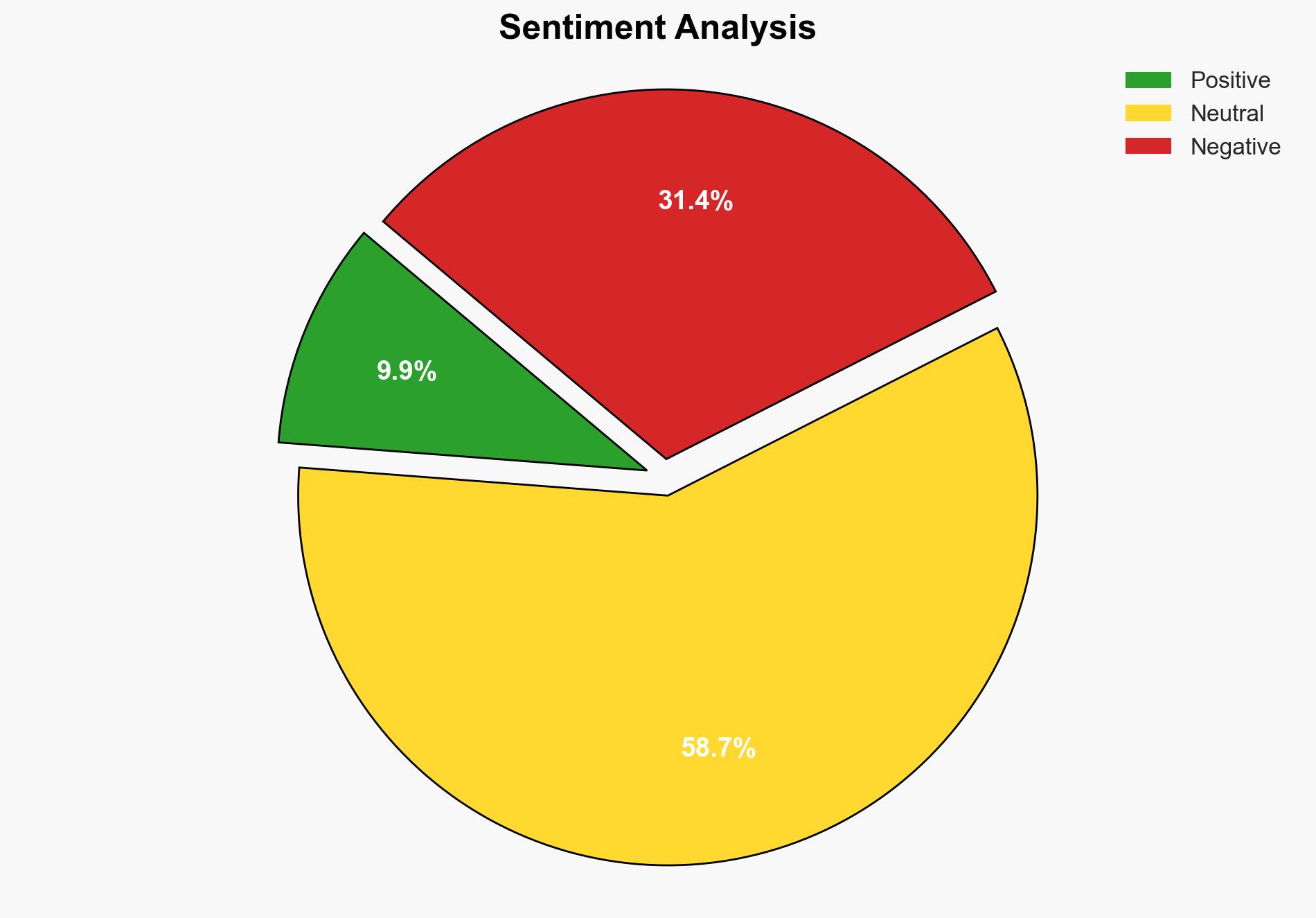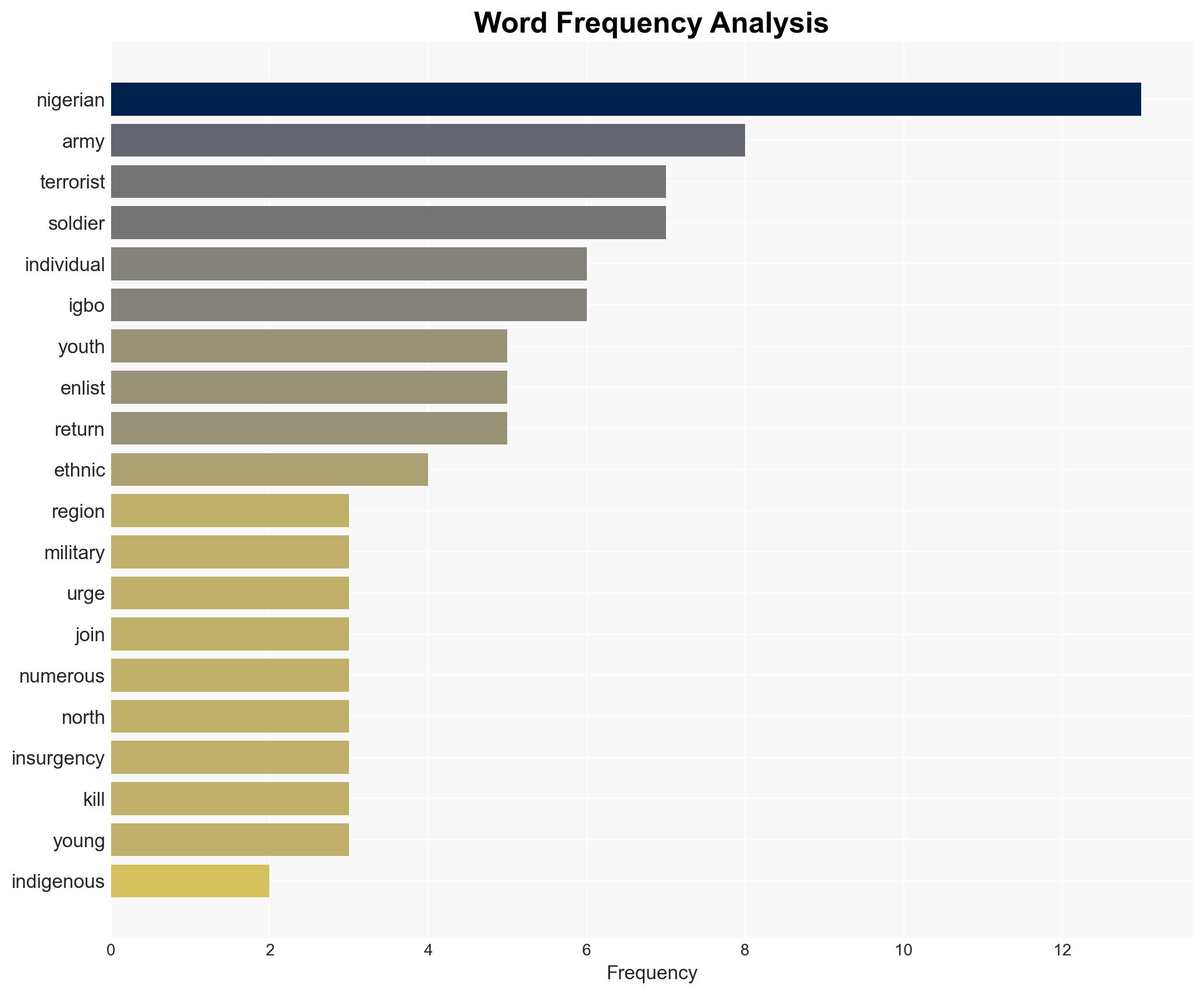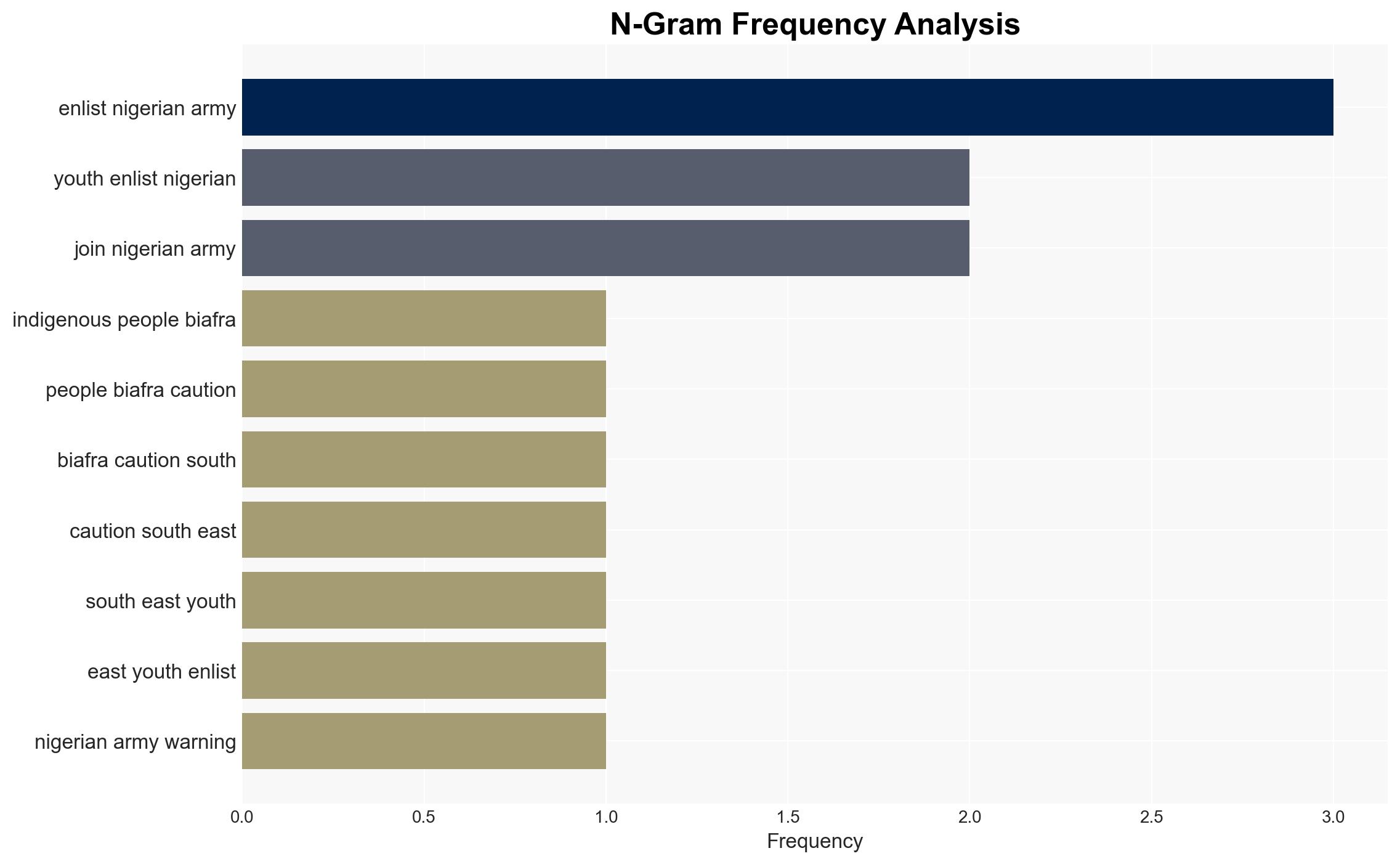Shun Army recruitment IPOB tells South East youths – The Punch
Published on: 2025-04-08
Intelligence Report: Shun Army Recruitment IPOB Tells South East Youths – The Punch
1. BLUF (Bottom Line Up Front)
The Indigenous People of Biafra (IPOB) has issued a warning to South East youths against enlisting in the Nigerian Army. The group cites historical ethnic bias and the risk of deployment to volatile regions as primary concerns. The statement highlights the potential exploitation of recruits and the dangers posed by terrorist groups such as Boko Haram. It is recommended that stakeholders consider the implications of these warnings on regional stability and youth engagement strategies.
2. Detailed Analysis
The following structured analytic techniques have been applied for this analysis:
General Analysis
IPOB’s statement reflects ongoing tensions between ethnic groups and the Nigerian military. The group’s allegations of ethnic bias and neglect resonate with historical grievances among the Igbo population. The warning against army enlistment is a strategic move to protect South East youths from perceived exploitation and to encourage traditional livelihoods. The mention of inadequate support for soldiers in conflict zones underscores the challenges faced by the Nigerian military in maintaining morale and operational effectiveness.
3. Implications and Strategic Risks
The call to shun army recruitment could exacerbate regional tensions and undermine national security efforts. If South East youths heed IPOB’s warning, the Nigerian Army may face recruitment challenges, impacting its ability to address insurgencies effectively. Additionally, the perception of ethnic bias and neglect could fuel further discontent and hinder efforts to foster national unity. Economic interests may also be affected as discouraged youths may turn away from military careers, impacting local economies reliant on military-related activities.
4. Recommendations and Outlook
Recommendations:
- Engage with community leaders to address grievances and improve trust in national institutions.
- Enhance transparency and fairness in military recruitment processes to mitigate perceptions of ethnic bias.
- Invest in regional development programs to provide alternative opportunities for youth engagement.
Outlook:
Best-case scenario: Improved dialogue and targeted development initiatives lead to increased trust and cooperation between the government and South East communities, stabilizing recruitment and regional security.
Worst-case scenario: Continued distrust and recruitment challenges exacerbate regional instability, weakening national security efforts and economic growth.
Most likely outcome: Partial engagement and incremental improvements in recruitment practices may alleviate some tensions, but underlying grievances persist, requiring ongoing attention.
5. Key Individuals and Entities
The report mentions significant individuals and organizations, including Emma Powerful and the Indigenous People of Biafra (IPOB). The analysis focuses on the implications of their statements and actions without detailing specific roles or affiliations.




